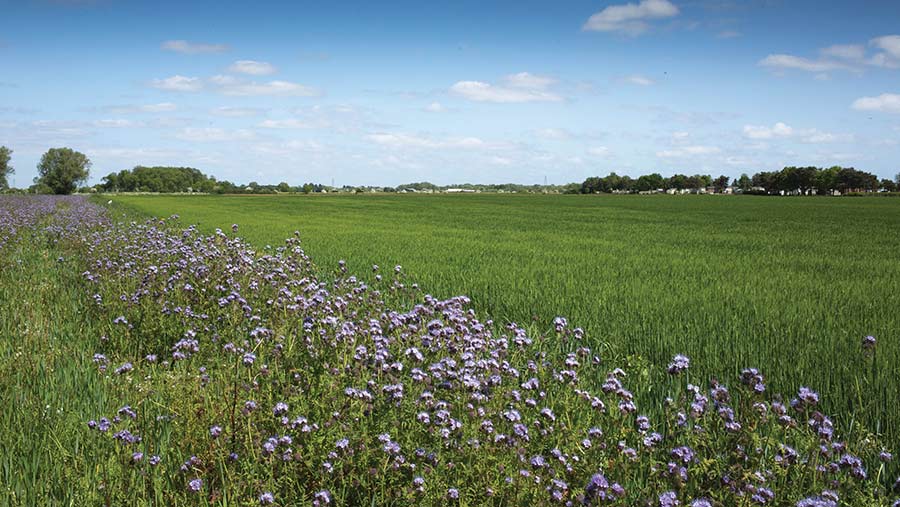Defra announces cap on SFI actions to maintain food production
 © Tim Scrivener
© Tim Scrivener Defra has responded to industry concerns about food security by announcing a cap on the amount of some environmental incentives farmers in England can claim under the Sustainable Farming Incentive.
New applicants to the Sustainable Farming Incentive (SFI) scheme will only be able to put 25% of their land into six SFI actions that take land out of food production.
See also: Defra minister hints at SFI cap to maintain food production
The six actions are:
- IPM2: Flower-rich grass margins, blocks or in-field strips
- AHL1: Pollen and nectar flower mix (which should be growing in blocks or strips in a land parcel)
- AHL2: Winter bird food on arable and horticultural land (which should be growing in blocks or strips in a land parcel)
- AHL3: Grassy field corners or blocks
- IGL1: Take improved grassland field corners or blocks out of management
- IGL2: Winter bird food on improved grassland (which should be growing in blocks or strips in a land parcel).
Defra says the six actions “were always intended to be implemented on smaller areas of the farm – something the new measures will protect”. The rest of the SFI actions will remain uncapped.
The SFI is the first component of Defra’s Environmental Land Management programme, its flagship post-Brexit farm support scheme which is replacing the CAP.
The farming schemes are intended to pay farmers to take actions that improve the environment alongside sustainable food production.
To date, Defra has received more than 15,000 SFI applications and issued over 14,000 agreement offers to farmers in England.
The vast majority of land in the SFI scheme continues to produce food.
However, about 1% of farmers that applied to SFI 2023 have applied to put 80% or more of their farm into these six non-productive actions.
SFI capping hint
Defra farm minister Mark Spencer hinted at last month’s Norfolk Farming Conference that his department would have to consider capping certain SFI actions to ensure farmers are producing enough food for the nation.
Announcing the cap, Mr Spencer said: “Food production is the primary purpose of farming, and today we are taking action to clarify this principle.
“The six actions we are capping were always intended to be implemented on smaller areas of land, and these changes will help to maintain this intention and continue our commitment to maintain domestic food production.”
The government says it is taking action to ensure at least 60% of the food consumed in the UK is produced here.
This includes a new annual UK-wide Food Security Index to capture and present the data needed to monitor levels of food security.
Industry reaction
The Tenant Farmers Association (TFA) welcomed Defra’s decision to limit participation in some SFI options to demonstrate the ethos of the scheme to be taking a land sharing approach as between producing food and environmental outcomes.
TFA chief executive George Dunn said: “The limits will also assist with taking away the incentive for some landlords to remove land from the tenanted sector of agriculture to participate in schemes themselves.
“This will help to safeguard the government objective to at least maintain the current area of land within the let sector of agriculture.
But he added: “Defra must ensure that the scheme, overall, is adequately rewarding to active farmers as it fully replaces the Basic Payment Scheme over the next three years.”
NFU deputy president David Exwood also applauded the fact the changes were being implemented before the traditional point at which tenancies are reviewed, in September.
“An important principle of ELMs is that it does not disadvantage the tenanted sector and this will help keep active farmers on the ground while encouraging them to farm more sustainably,” he said.
